| Gemstone Chart |
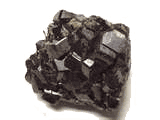 Natural Andradite Natural Andradite
Andradite is a Garnet, belonging to the Garnet group. It has the most powerful luster of any garnet, and this makes it a reputable gem.
Color: brown, greenish brown, yellowish green, green
Categories: semi-precious stone
Chemical Composition: Ca3Fe2(SiO4)3
Crystal Group: Cubic
Refractive Index: 3.82 �C 3.85
Hardness: 6.5
Density: 1.888 �C 1.889
Occurrence: Mexico, Korea, Namibia, Russia, Iran, South Africa
|  Natural Beryl Natural Beryl
Beryl is a semi-precious clear gemstone which usually comes in greens, yellows, and occasionally pinks, ands various shades thereof.
Color: Green, blue, pink, yellow, red
Categories: semi-precious stone
Chemical Composition: Be3Al2(SiO3)6
Crystal Group: Hexagonal
Refractive Index: 1.577(+-.016), 1.583 (+-.017)
Hardness: 7.5
Density: 2.67-2.745
Occurrence: Austria, Columbia, Brazil, Russia, East Africa, Australia, Madagascar, South Africa, Zimbabwe, India, Pakistan, Zambia, Nigeria, U.S.A., Afghanistan
|  Natural Chalcedony Natural Chalcedony
Chalcedony is a catch all term that includes many well known varieties of cryptocrystalline quartz gemstones. They are found in all 50 States, in many colors and color combinations, and in sedimentary, igneous, and metamorphic rocks.
Color: grayish, purple, white, green, blue, lavender, yellow, brown
Categories: semi-precious stone
Chemical Composition: SiO2
Crystal Group: Hexagonal
Refractive Index: 1.530 - 1.539
Hardness: 6.5
Density: 2.57 �C 2.64
Occurrence: Brazil, U.S.A. Germany, India, Uruguay, Austarlia, Egypt, Italy, Scotland, South Africa, Namibia, Madagascar, Mexico, Tanzania, and many other localities throughout the world.
| 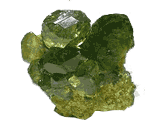 Natural Demantoid Natural Demantoid
The demantoid is one of the most brilliant gemstones that exist, yet until recently it was little known except among collectors and gemstone lovers.
Color: Green, yellow green.
Categories: semi-precious stone
Chemical Composition: Ca3Fe2(SiO4)3
Crystal Group: Cubic
Refractive Index: 1.888 - 1.889
Hardness: 6.5
Density: 3.82 - 3.50
Occurrence: Russia, Namibia, Iran, South Africa
| 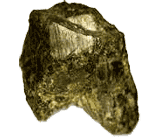 Natural Enstatite Natural Enstatite
Enstatite is a relatively common mineral, but is rarely used for jewelry purposes. It is generally cut for gem connoisseurs and collectors rather than for the common consumer.
Color: Gray, green, brown, orange-brown, yellowish-brown, colorless, pale yellow.
Categories: semi-precious stone
Chemical Composition: MgSiO3
Crystal Group: Orthorhombic
Refractive Index: 1.663-1.673
Hardness: 5.5
Density: 3.26-3.28
Occurrence: South Africa, Burma, Tanzania, Sri Lanka, Kenya, Germany, Norway, Greenland
| 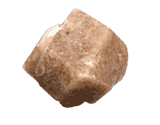 Natural Grossularite Natural Grossularite
A member of the garnet group, grossularite is found in a variety of colors including, yellow, brown, white, colorless, green, violet-red, and orangey red.
Color: Brown, yellow, green
Categories: semi-precious stone
Chemical Composition: Ca3Al2(SiO4)3
Crystal Group: Cubic
Refractive Index: 1.72-1.748
Hardness: 7.25
Density: 3.65
Occurrence: Canada, East Africa, Pakistan, New Zealand, Ceylon, South Africa, U.S.A.
| 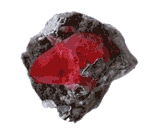 Natural Rhodochrosite Natural Rhodochrosite
Rhodochrosite is a manganese carbonate mineral with chemical composition MnCO3. The pink color of rhodochrosite is caused by the element manganese and it is formed when manganese is dissolved by ground water and combines with a carbonate material and then drips off the ceiling of caves and crevices deep underground.Rhodochrosite often forms pink and white bands. It is often carved into figurines or boxes while the tubular stalactite formations are often sliced for use in jewelry. Fine gem quality crystals are sometimes cut into gemstones for use in high end jewelry, but the more common grade is used extensively in silver and gold jewelry.
Color: Rose red, raspberry red, pink, grey, fawn, brown
Categories: semi-precious stone
Chemical Composition: MnCO3
Crystal Group: Trigonal
Refractive Index: 1.600 �C 1.820
Hardness: 4
Density: 3.45 �C 3.70
Occurrence: Argentina; Colorado, U.S.A.; Romania; Hungary; India; South Africa; Saxony, Chile; Peru; Mexico.
| 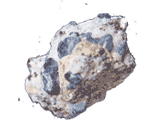 Natural Sapphirine Natural Sapphirine
Sapphirine is a rare mineral, a silicate of magnesium and aluminium.Though Sapphirine clearly falls into the "rare stone" category, it is a relatively durable stone with a Moh's hardness of 7.5. Sapphirine's very distinctive appearance along with their somewhat unusual durability have made them fairly popular with collectors.
Color: Pale blue, bluish gray, greenish gray, green, purplish pink
Categories: semi-precious stone
Crystal Group: Monoclinic
Refractive Index: 1.714-1.723
Hardness: 7.5
Density: 3.4-3.5
Occurrence: U.S.A., U.K., Sweden, Czechoslovakia, Japan, South Africa, Greenland, Madagascar, Italy, Sri Lanka
|
|
